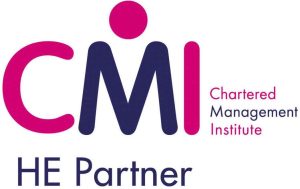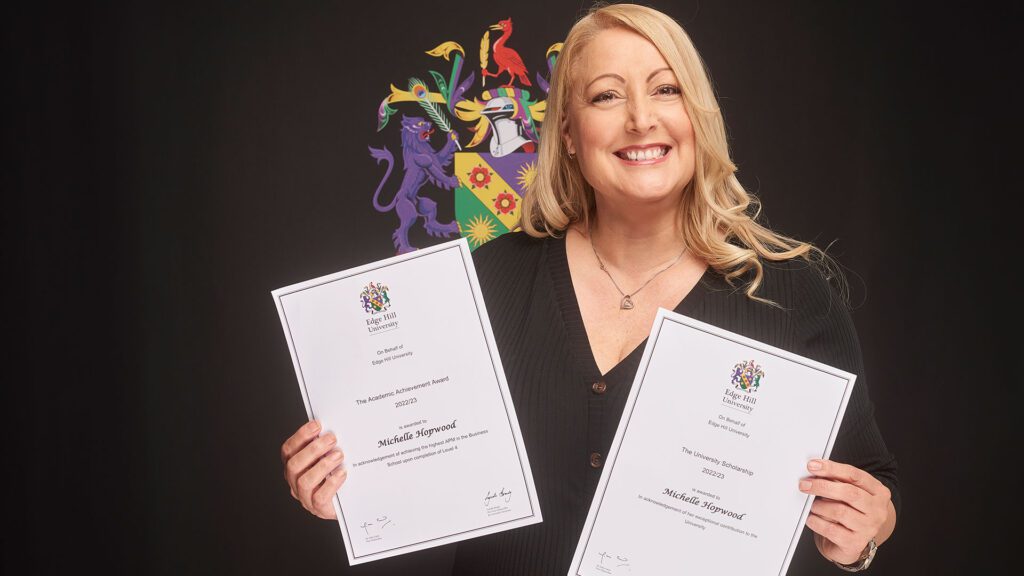Business and Economics BSc (Hons)
UCAS code: VT89
Unlock the secrets of business and management, markets, economics and growth. You’ll work on real life projects and will gain eligibility for Affiliate Member status of the Chartered Management Institute on our business and economics degree.
Subject to re-validation.
Overview
| Course length: | 3 years full-time |
|---|---|
| Start dates: | September 2025 |
| Location: | Edge Hill University |
| Example offers: | BCC-BBC (A Level) or DMM (BTEC) View full entry criteria |
| Subject(s): | EconomicsBusiness Management |
| Faculty: | Arts and Sciences |
| Department: | Business School |

If applying for September 2024 entry this course is BSc (Hons) Business & Economics.
How can businesses plan to grow and anticipate changing market behaviours? Why do some businesses thrive in a recession, while others fail? Why does a situation in one country affect the economy in another? On our business and economics degree you’ll see how an understanding of economics can inform decision-making for business strategy and global trade.
The economy is at the forefront of political and business life. This means that economists are constantly in demand by businesses. Our business and economics degree equips you with the knowledge and skills required for your future career.
You’ll explore contemporary business practices. Analyse past and present economic theory. And apply the theory to real-life situations. You’ll also examine the impact of global perspectives on private and public sector businesses while understanding what can affect local and international markets.

Course features
-
International students can apply
-
Learn a language option available
-
Professional accreditation
-
Sandwich year option available
-
Studying abroad option available
-
Work placement opportunity
What you'll study
You’ll dive into business economics and finances, looking at organisational behaviour in the marketplace, as well as international business environments. We’ll introduce you to business finance, and equip you with the skills to operate your business professionally. You’ll also have an introduction to business analysis, finding out how to use data to inform decision-making and organisational strategy.
In the second year of your business and economics degree, you’ll explore supply, demand, price and elasticity, strengthening your knowledge and skills in business economics. You’ll also begin to study international economics. You’ll understand currency markets and international investment. You’ll learn about managing the human resource and explore research methods for business. In your second year, you’ll get to choose two modules which might include topics like branding, consumer behaviour, and law for business.
Your final year will see you head into contemporary issues in economics and finance. You’ll look into developments that enhance or slow economic growth, and develop skills in artificial intelligence and technology. You’ll work on a live project with a real business, giving you the chance to experience project management in a modern business environment. You’ll choose from a number of additional subjects too. These could be topics such as business intelligence, development economics, or strategic finance.
Where your course includes optional modules, these are to provide an element of choice within the course curriculum. The availability of optional modules may vary from year to year and will be subject to minimum student numbers being achieved. This means that the availability of specific optional modules cannot be guaranteed. Optional module selection may also be affected by timetabling requirements. Some restrictions on optional module choice or combinations of optional modules may apply.
How you'll study
As well as preparing for and attending lectures, seminars, tutorials and workshops, you will be spending time reading and completing coursework, including written assignments, presentations, and project work.
Throughout this degree in business and economics, you will have the opportunity to develop your employability profile through a work placement or participation in a graduate enterprise project. In addition, you will undertake live client projects with organisations or work on agreed projects with real outcomes and impact.
How you'll be assessed
The programme uses different forms of assessment to test intellectual development, vocational capabilities and critical thinking. Assessments will be linked to business practices that allow you to develop your CV for future graduate level employment.
Who will be teaching you
Edge Hill Business School is home to a thriving research community, hosts a growing international partnership portfolio, and is a member of AACSB International (The Association to Advance Collegiate Schools of Business), the world’s largest management education network.
All of our staff are passionate about student learning and development. This business and economics degree has been designed by specialists in accountancy, business development, economics, human resource management, marketing, and the digital economy. The programme team includes several researchers who publish regularly while also working with local and national businesses and international research groups on cutting edge projects.
Entry criteria
Entry requirements
Typical offer 104-112 UCAS Tariff points. No specific subjects are required.
Example offers
| Qualification | Requirement |
|---|---|
| A Level | BCC-BBC. |
| BTEC Extended Diploma (or combination of BTEC QCF qualifications) | Distinction, Merit, Merit (DMM). |
| T Level | Overall grade of Merit. |
| International Baccalaureate (IB) | We are happy to accept IB qualifications which achieve the required number of UCAS Tariff points. |
| Access to Higher Education Diploma | 45 credits at Level 3, for example 9 credits at Distinction and 36 credits at Merit or 15 credits at Distinction and 30 credits at Merit. The required total can be attained from various credit combinations. |
Please note, the above examples may differ from actual offers made. A combination of A Level and BTEC awards may also be accepted.
If you have a minimum of two A Levels (or equivalent), there is no maximum number of qualifications that we will accept UCAS points from. This includes additional qualifications such as Extended Project Qualification (EPQ), AS Levels that haven't been continued to A Level, and General Studies AS or A Level awards.
English language requirements
International students require IELTS 6.0, with a score no lower than 5.5 in each individual component, or an equivalent English language qualification.
If your current level of English is half a band, one band, or one-and-a-half bands lower, either overall or in one or two elements, you may want to consider our Pre-Sessional English course.
How to apply
Apply full-time
Read our guide to applying through UCAS to find out more about the application process.
International
Please see our international student pages for further information about how to apply as a prospective international student.
Should you accept an offer of a place to study with us and formally enrol as a student, you will be subject to the provisions of the regulations, rules, codes, conditions and policies which apply to our students. These are available at www.edgehill.ac.uk/studentterms.
If you join a full time undergraduate degree at Edge Hill University, we will guarantee you the offer of a room in our halls of residence for the first year of your course.
Discover our accommodation
Facilities
A stunning £8million building provides impressive teaching and learning facilities for students in Edge Hill Business School. 
The contemporary three-storey building offers a 100-seat lecture theatre and modern seminar and meeting rooms. There are also social learning areas which encourage a more informal and interactive style of learning, in addition to an attractive roof garden and atrium.
Where you'll study
Business School
Finance
Tuition fees
The tuition fees for 2025/26 have not yet been confirmed. This page will be updated with further information when it is available.
EU/EEA and Swiss students who have settled or pre-settled status under the EU Settlement Scheme, as well as Irish nationals, may be eligible for the UK tuition fee rate.
Financial support
Subject to eligibility, UK students joining this course can apply for a Tuition Fee Loan from the Government to cover the full cost of tuition fees. UK students enrolling on the course may also be eligible to apply for additional funding to help with living costs.
Please view the relevant Money Matters guide for comprehensive information about the financial support available to eligible UK students.
EU/EEA and Swiss students who have settled or pre-settled status under the EU Settlement Scheme may be eligible to apply for financial support. Irish nationals can ordinarily apply to Student Universal Support Ireland (SUSI). If you are an EU student who does not have settled or pre-settled status, or are an international student from a non-EU country, please see our international student finance pages.
Your future career
By the time you finish our business and economics degree, you’ll have developed a broad economic understanding and will have acquired skills that are sought after by both businesses and government organisations.
What can you do with a business and economics degree? Recent graduates have gone on to work for organisations like British Aerospace, Airbus, Bentley Motors, and HMRC. Wherever you find work, you’ll have the skills needed to react, strategise and plan for business growth and success.
Previous graduates have used their knowledge to enter careers across a diverse range of sectors, securing roles such as:
- Operations manager
- Project manager
- Business and finance manager
- Digital account manager
- Business development manager
- Economic and financial analyst
Applying for a graduate role isn’t your only option though. You could stay at Edge Hill to take your studies even further. We offer a range of postgraduate courses in business and management.
On this course you will gain affiliate membership of the Chartered Management Institute (CMI), a globally recognised professional body, for the duration of your degree and one year after graduation.
On successful completion of your degree, you will also be awarded a CMI Level 5 Certificate in Management and Leadership.











